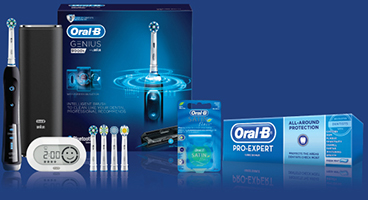Setting good oral hygiene habits for your kids when they’re little will help them to learn to take care of their teeth throughout their life. Here’s what you need to know about taking care of your child’s oral hygiene.
Baby teeth are important
In South Africa there is a huge misconception that primary teeth – or baby teeth, as they are commonly called – are not important. This thinking is not only harmful to the child’s health in the present, but it can affect the future health of child’s permanent teeth, explains dental hygienist Emma Coulter.
A leading cause of oral hygiene problems in young children is when parents send their children to sleep with bottles, where the milk or sweetened rooibos tea, for example, is left in the mouth to pool. This results in a long, drawn-out acid attack, which destroys the primary teeth, explains Coulter.
“If decay is left unattended in the oral environment, it causes acid levels to rise in the mouth, compromising all the teeth in the mouth as well as the newly-erupting permanent teeth. If primary teeth are lost too early during the permanent teeth development it does not guide the new tooth into position and the need for orthodontics may increase,” says Coulter.
Tooth care need-to-know
Coulter has the following advice for parents wanting their children to have the best oral health possible:
- Do persist. Most kids find brushing their teeth a chore, so it’s paramount to remind and encourage your kids to take care of their teeth on a daily basis. A daily routine should consist of brushing twice a day, mouth rinsing and flossing, heeding the age guideline provided by the manufactures. Flossing need only start once your child gets their permanent teeth at around age six.
- Do not make your child use mouth rinse if they cannot yet spit. Mouth washing is only prescribed for children when they have an understanding that the product is not a form of juice or refreshment and is something they need to spit out. This happens around the age of 3 years.
- Do not use adult toothpaste on children. Adult toothpaste contains more fluoride than the kid’s toothpaste that is prescribed for specific ages. The mint flavor in adult toothpastes can also be overwhelming for children.
- Do introduce your children to a dental environment as early as possible. It is vitally important to introduce children as early as possible to a dental setting to decrease negative connotations and anxiety. At the first visit, there should not be a need for treatment; rather it should serve as an introduction to the dental setting and the practitioners themselves.
- Do go for regular dental appointments. Regular visits with a dentist or oral hygienist will help to catch any problems early, or prevent any future problems from occurring.
ARTICLE IMAGE CREDIT: Getty Images
FEATURED PRODUCT: Oral-B
The Oral Hygienist Association of South Africa (OHASA) has endorsed several Oral-B technologies designed specifically to prevent oral disease and maintain good oral health. Make use of the convenience of online shopping and buy from the Oral-B range NOW!


